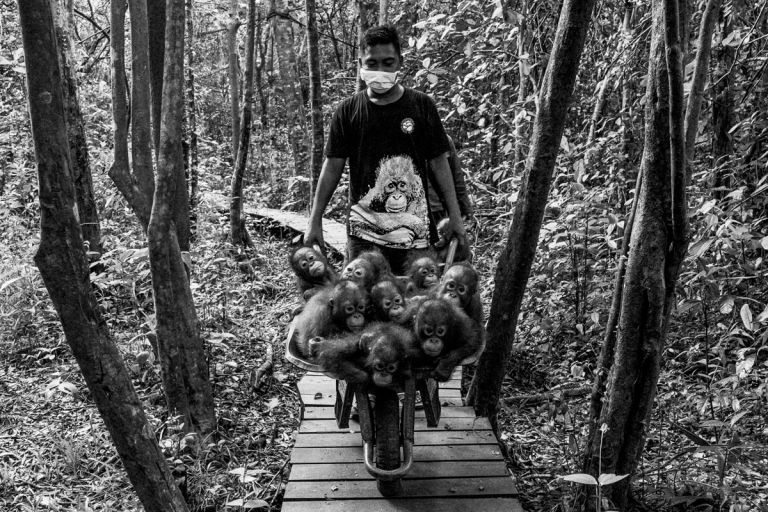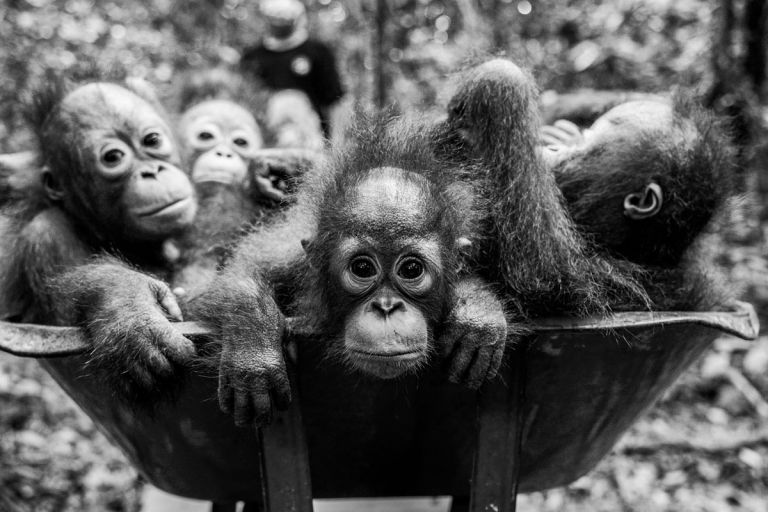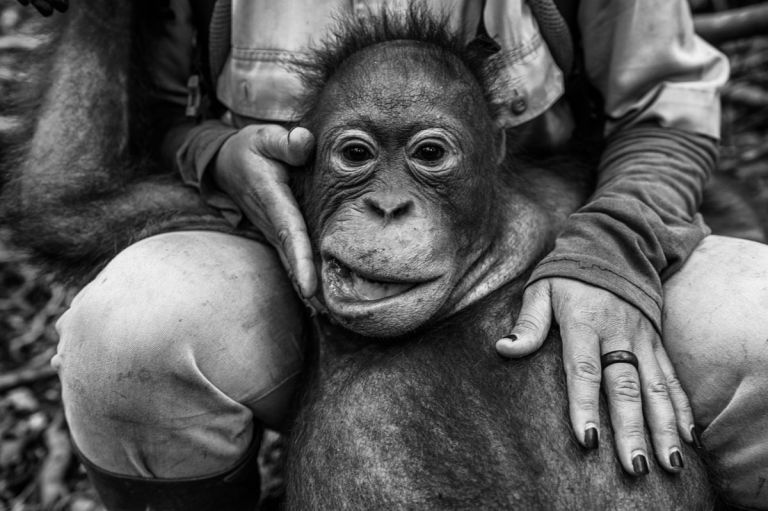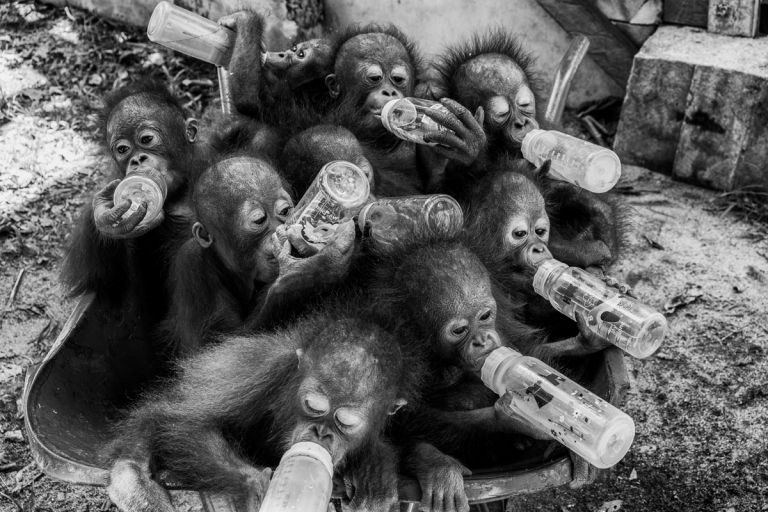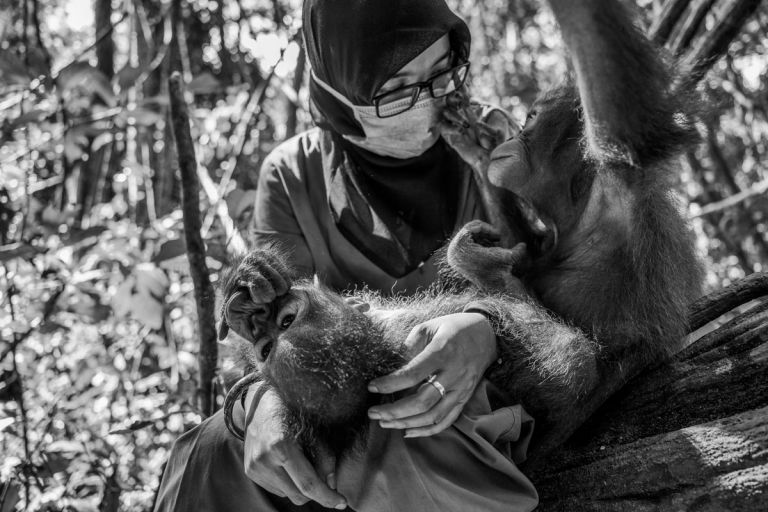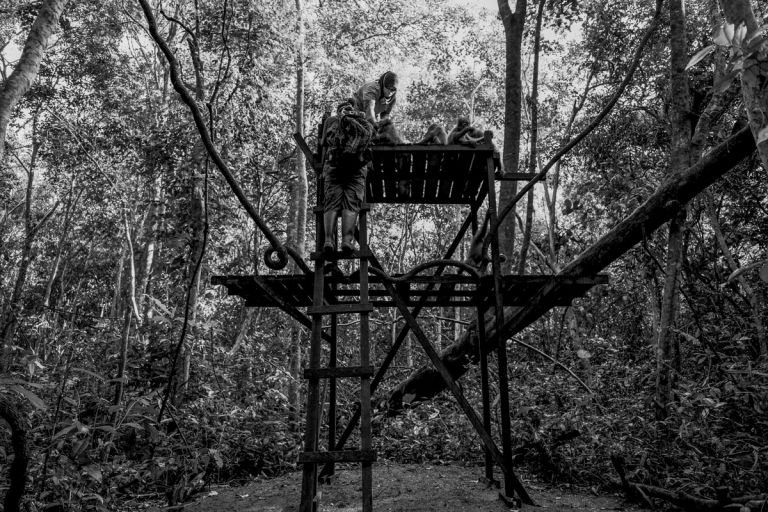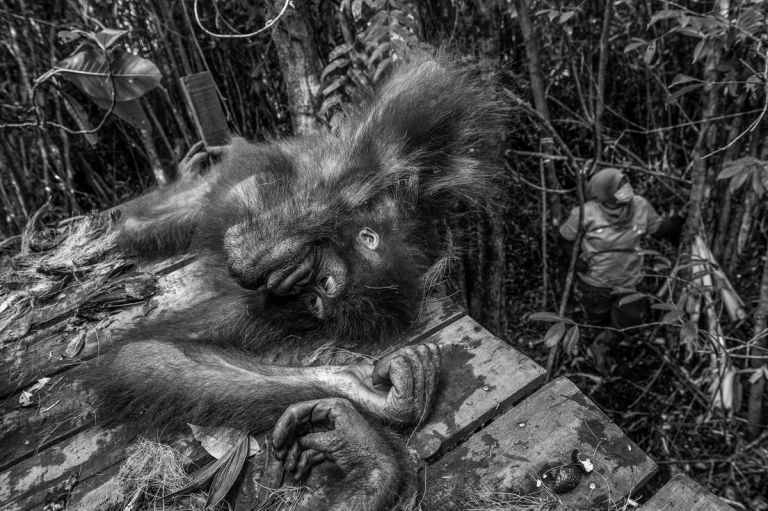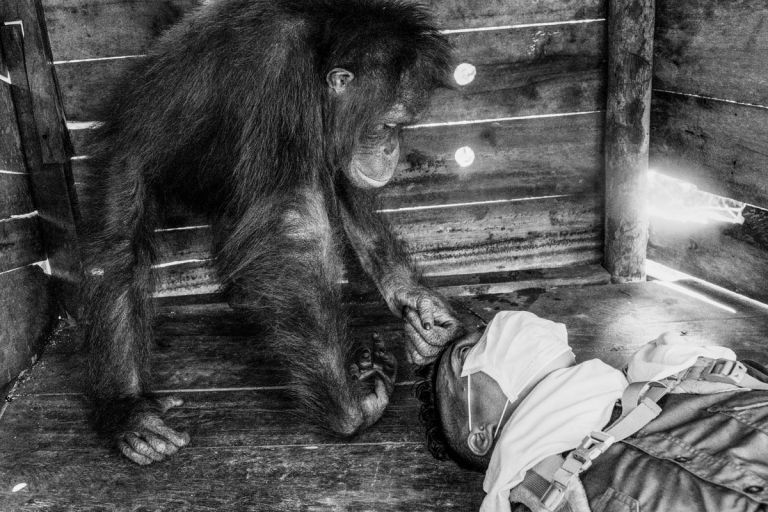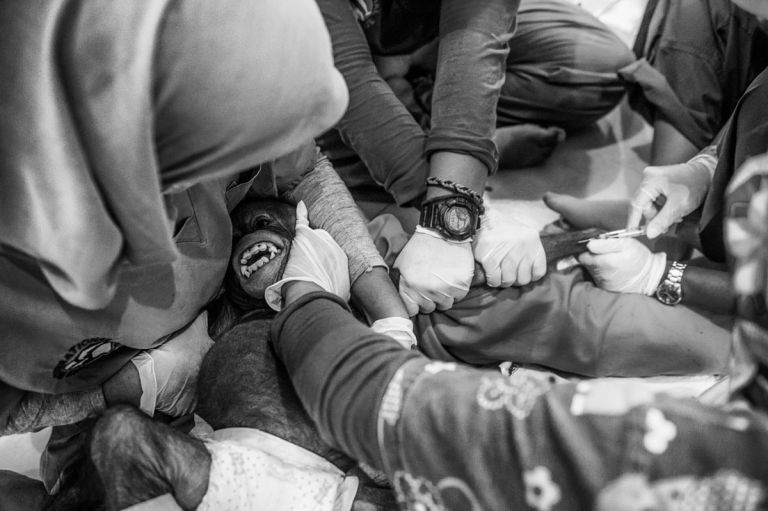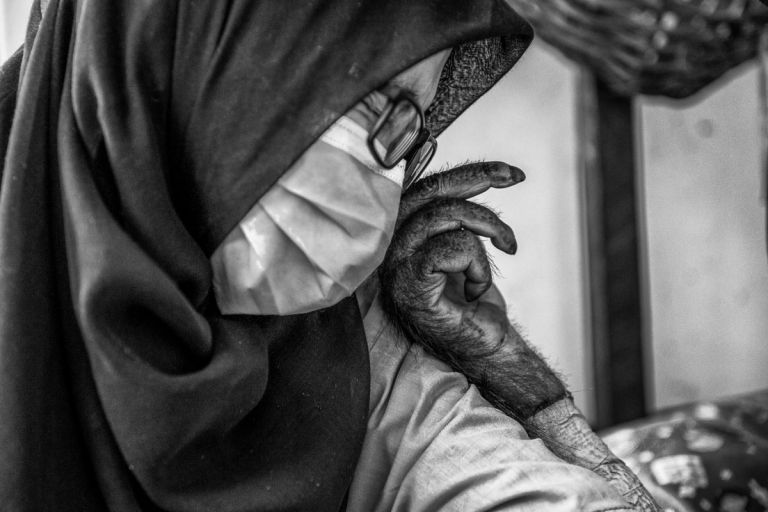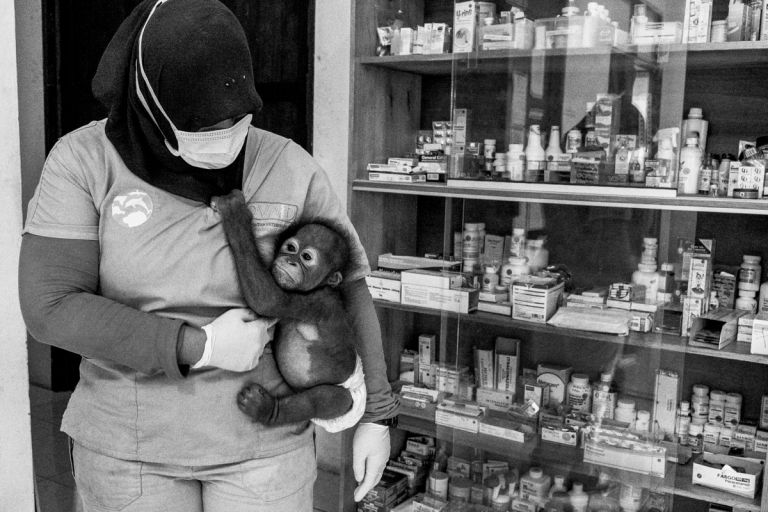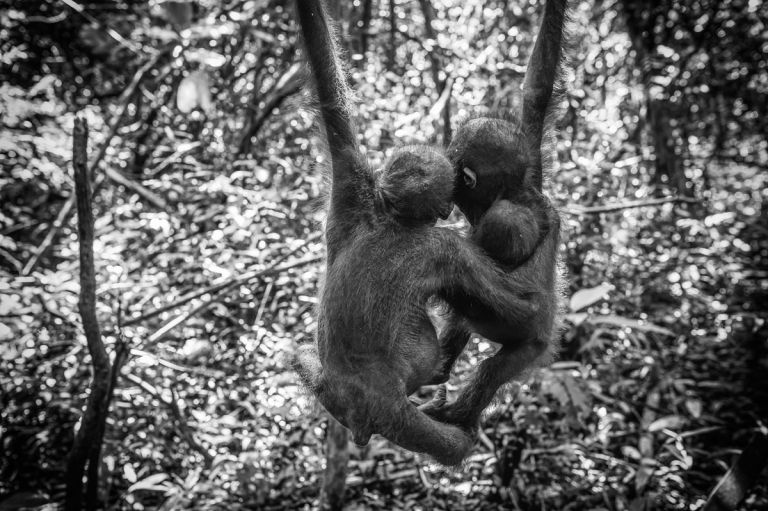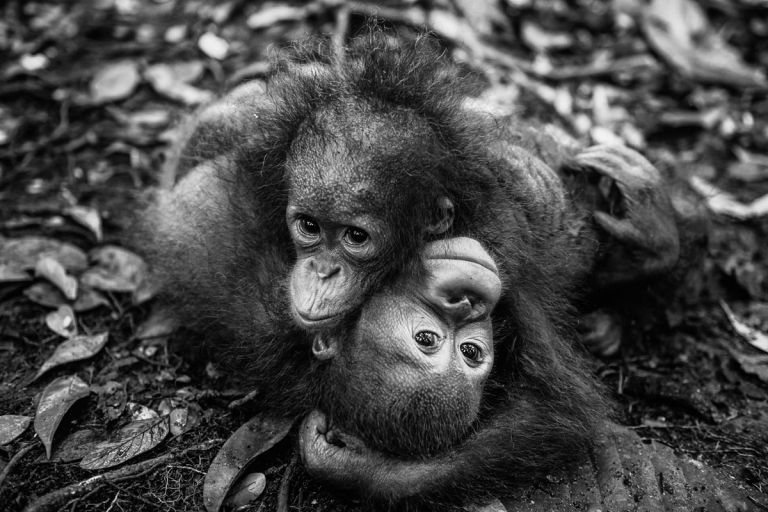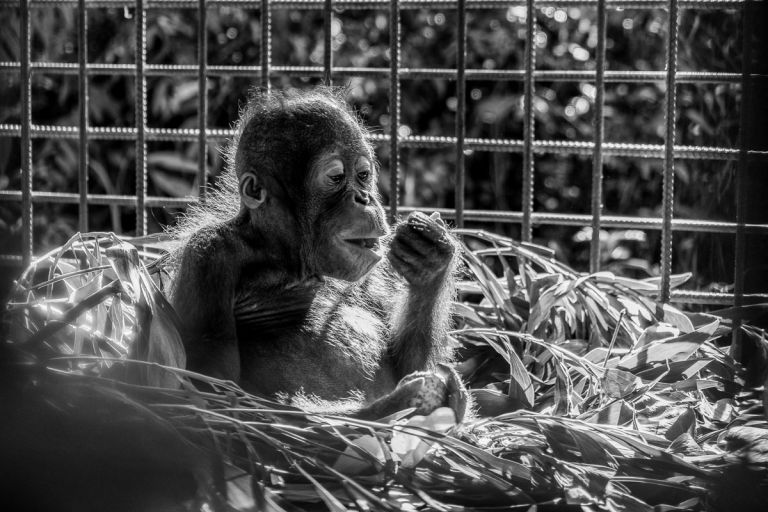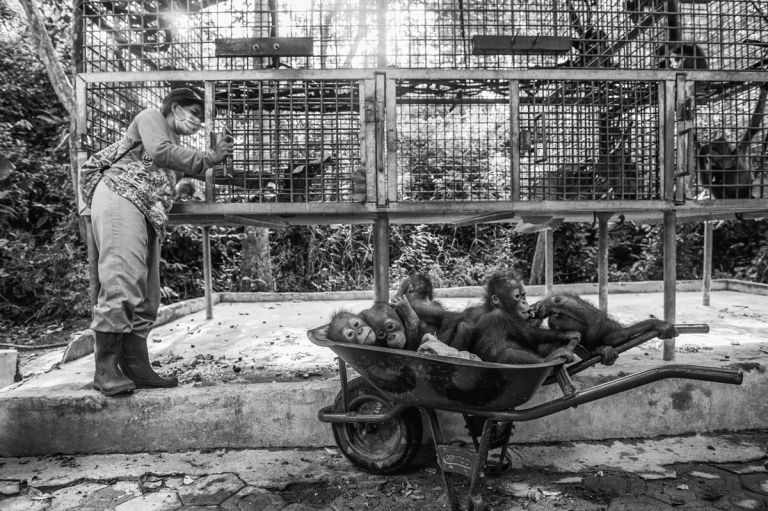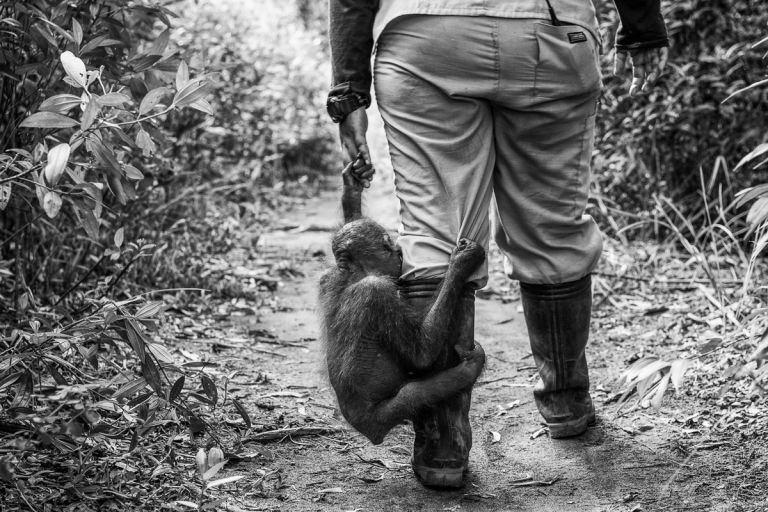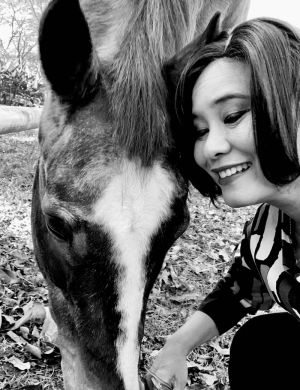
Dilla Djalil Daniel, Indonesia
Dilla Dlalil Daniel was born in 1966 in Jakarta where she lives today. She was given a camera at the age of nine with which she photographed her dogs. As she had to give up her dream of becoming a vet she studied English literature, working for an advertizing agency for a while. Workshops with the well-known photographers Alex Webb and Peter Turnley turned her into a ‘workshop junkie’. She attended such workshops in Istanbul, Buenos Aires, Chiang Mai, South Africa, and on Antigua. She started to admire NGOs – and above all she has been expelled from her comfort zone. Wherever she went she was looking for animal sanctuaries. Be it the elephant hospital in Thailand, be it a rescue centre for maltreated donkeys in Nepal. She has two dogs, two cats and one horse. We can assume that she treats them very well.
She had intended to become a veterinary, but became a photographer instead. However, she has never lost interest in animals. The Indonesian Dilla Djalil Daniel has been trying to capture the way how humans treat animals with her camera for many years. And it is the human factor which she also sees in animals. She even regards herself as their advocate. Danila knows that mankind has declared war on many animals by destroying their natural habitats or forcing them into an industrial production chain. That is why she is making an effort to find some exceptions. She has discovered an especially peaceful and touching one at a rehabilitation centre for orphaned orangutans in West Kalimantan. Here, the baby orangutans, whose mothers were killed or sold, are prepared with great care for an independent life in freedom. Here, they are not just fed and cared for, but they are taught to climb, to build nests, and to find food. Are they sweet photos? Yes, that as well, but Dilla Djalil Daniel wants more. She wants people to think about what we are doing to the emotions, the feelings of animals. And she hopes that we will not sacrifice animals like orangutans on the altar of our lifestyle and consumption of resources one fine day, but that we rather make peace with the creatures, developing empathy and sympathy for them. (Text by Peter-Matthias Gaede)
